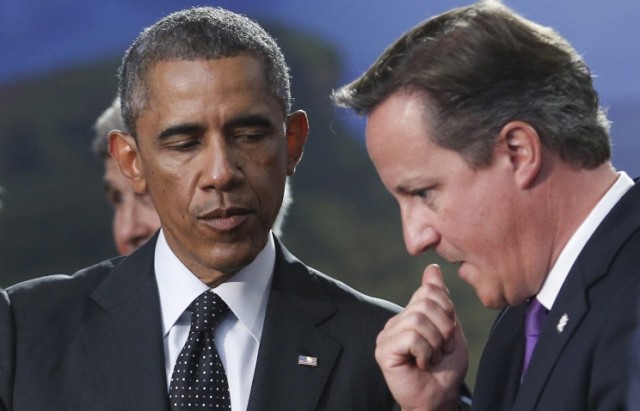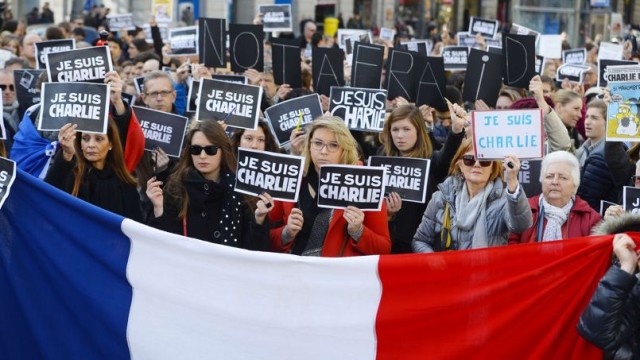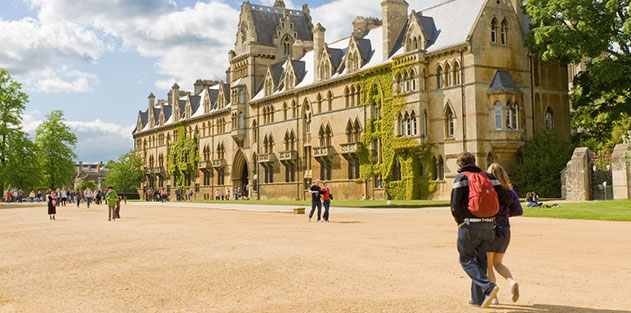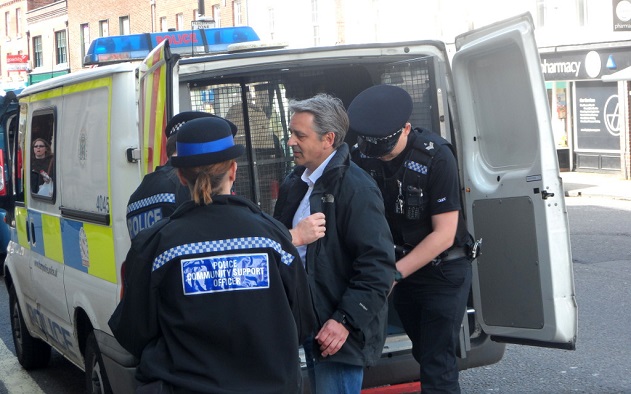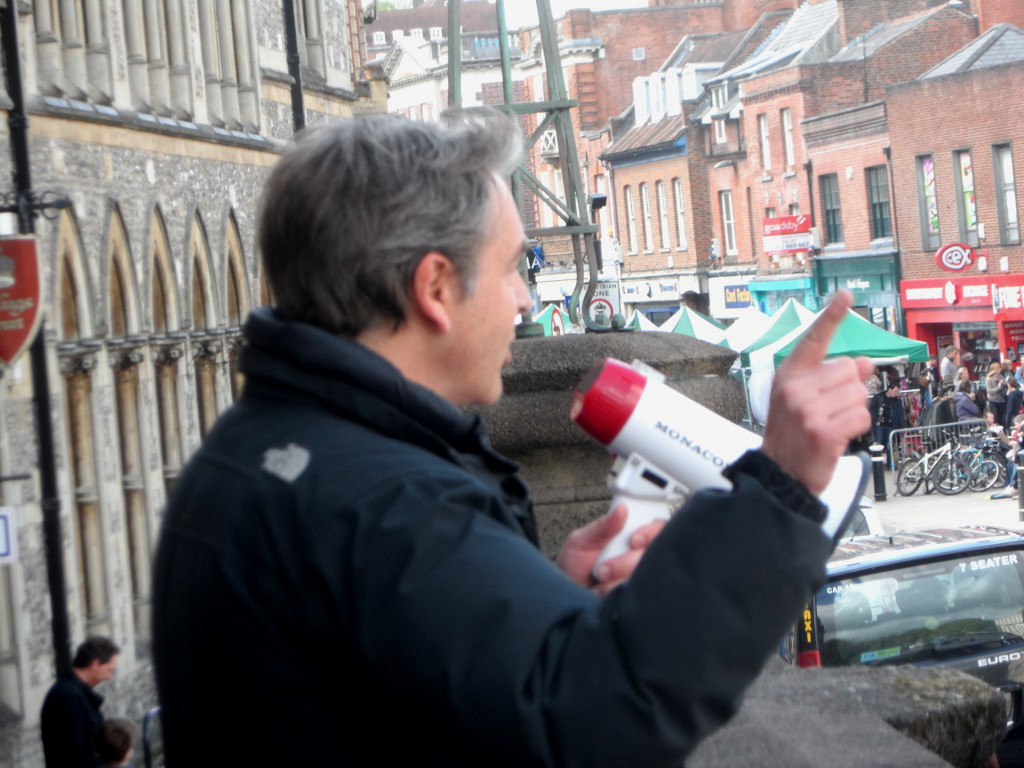Between 7 and 9 January, Paris witnessed a brutal and drawn-out terrorist attack which left 17 dead and sparked widespread debate on questions of security and freedom of speech. Though shocking, the attack is just one in a string of radical Islamic terrorist atrocities targeting civilians as well as the democratic and security institutions of Western nations.
As ever, The Henry Jackson Society was on hand to provide in-depth analysis to top news outlets in the UK and around the world, arguing vocally against any compromise in our right to freedom of speech.
Associate Director Douglas Murray led opinion with his thought leadership on the attack in both the Daily Mail and the Spectator (both are reprinted below).
Below is a selection of HJS’ latest TV and radio interviews on the topic. We will, of course, continue to promote our cause throughout the media and our appearances can always be viewed on our YouTube channel.
TV Appearances
7 January: Douglas Murray on Channel 4 News
7 January: Davis Lewin on France 24
7 January: Douglas Murray on WSJ Live
7 January: Robin Simcox on ITV News
7 January: Hannah Stuart on Al Arabiya
8 January: Alan Mendoza on CNBC
8 January: Douglas Murray on Sky News
8 January: Douglas Murray on Al Jazeera
8 January: Douglas Murray on BBC Daily Politics
10 January: Davis Lewin on France 24
11 January: Douglas Murray on BBC’s Big Questions
Radio Appearences
7 January: Douglas Murray on BBC World Service
7 January: Douglas Murray on BBC London
7 January: Robin Simcox on BBC 5 Live
7 January: Douglas Murray on BBC 5 Live
8 January: Douglas Murray on BBC World Service’s World Tonight
9 January: Emily Dyer on BBC Ulster
9 January: Douglas Murray on BBC World Serivce’s World Have Your Say
Thought Leadership
A threat to every single one of us: The cold-blooded outrage in Paris is about our right to be free to express ourselves
Douglas Murray in The Daily Mail
The cold-blooded outrage in Paris is not a story about one magazine or one country – and it is not just about freedom of the Press.
It is about the right of every single one of us to be free to express ourselves. And it is high time the nations of Europe woke up to how gravely that right is under threat.
Because what happened yesterday – though the most appalling incident of its kind yet – is in many ways far from unprecedented. It is just the latest chapter in a long, concerted campaign to shut down criticism and discussion of one religion, its founder and its teachings.
The aim of the campaign is to place that religion – Islam – above the level of all other religions or ideas and make it immune from criticism. And the tactic is working.
This campaign has been gathering pace for at least 25 years. It really started in the West in 1989 after the publication of Salman Rushdie’s novel The Satanic Verses, which contained passages considered deeply offensive by some Muslims.
The novel resulted in Ayatollah Khomeini of Iran issuing a fatwa – a religious judgment, in this case a death sentence – on Rushdie that forced the author into hiding. Though Rushdie survived, the fatwa was followed by the murder of a translator of his works and knife attacks on two others.
Then, as now, some people claimed that Rushdie had been deliberately provocative. Then, as now, even if that were the case it would matter not a jot. Nosociety can be considered truly free if its members are terrorised into silence and hiding by fatwas and mortal threats.
Even so, ever since the Rushdie affair, most authors, artists and publishers have avoided producing anything that might stoke the ire of fundamentalist Muslims.
Of course it is important to state that the great majority of Muslims are peaceful, law-abiding citizens, who abhor violence. Indeed yesterday Muslim leaders in Britain were among the first to condemn the Paris atrocity.
Nevertheless, there have been a very troubling number of attacks carried out in the name of Islam on those in the West considered to have criticised or shown a lack of respect to the religion.
In 2004, the Dutch film-maker Theo van Gogh was shot, stabbed and partially decapitated in broad daylight on a Dutch street. His killer, Mohammed Bouyeri, objected to a film van Gogh had made which criticised some of the Koran’s teachings about women.
Fear works. It breeds self-censorship. In 2005 the Danish newspaper Jyllands Posten discovered that no illustrator in Denmark would depict Islam’s founder for a series of children’s books on world religions.
The paper commissioned a dozen cartoonists to break this apparent taboo and published the results. The subsequent furore saw burnings and lootings of Danish Embassies across the Middle East and threats against Danes worldwide.
Having investigated and written about the growth of Islamic fundamentalism and its effects on our society for some 15 years, I came to know some of those involved in that Danish newspaper, as well as those at Charlie Hebdo, the French magazine attacked yesterday.
I began to realise how they had to endure constant threats to their safety, yet they continued to publish because they believed supremely in the right to freedom of expression, the right to make jokes about anyone and any subject, however powerful or revered they may be. Charlie Hebdo is a satirical, secular, punchy magazine which has picked up themes most people wanted to ignore.
In the wake of the 2005 Danish cartoons furore, it was about the only magazine that, sticking to its principles, chose to print any depiction of Islam’s founding prophet.
The magazine, which laughs at all religions, politics and beliefs, argued that if you are to be free you cannot allow any ideology to hold such a privileged position as to be above criticism. And so they lampooned Mohammed, and ISIS – as well as other targets like critics of Islam and the Far Right politician Marine le Pen.
After an issue that played on the magazine’s name and sharia law with the title ‘Charia Hebdo’, and mercilessly mocked Islamic fundamentalists, a firebomb was thrown into its offices. Its editor – who died yesterday, along with his police protection officer – received constant death threats.
But Charlie Hebdo magazine was not alone in being targeted for daring to poke fun. In 2010 one of the Danish cartoonists was confronted in his home by an axe-wielding Islamist trained by the Somali terrorist group al-Shabaab. A different cartoonist from Sweden, Lars Vilks, was targeted for death in a separate attack.
Across Europe I have encountered countless people – Muslim, ex-Muslim and non-Muslim – who have faced death threats.
Two years ago a 70-year-old friend of mine in Denmark – the historian and journalist Lars Hedegaard, who founded a Free Press Society in the wake of the cartoons affair – woke to a ring from the postman.
But the man at the door was not the postman. He was a young man with a gun who fired at Lars’s head at almost point-blank range. Miraculously he missed.
As Lars struggled with his would-be assassin on his own doorstep, the man fired again. The gun jammed and the culprit ran off. If you have seen and studied these cases of assassination and attempted assassination as many times as I have you notice certain patterns emerging.
One of the most common is for Western apologists for these terrorists to suggest that the victims have provoked the rage of fundamentalists – and they have therefore brought it upon themselves.
Nothing could have been further from the truth. The only people responsible for the carnage in this insidious and evil campaign to stamp out our freedoms are the thugs and murderers who carry it out.
In galleries, newspapers and magazines every day and week of the year there are works of art and articles that offend mainstream Christians.
Cartoons abound at Christmas depicting the Three Wise Men or the Virgin Mary with a humorous twist; there are revolting and puerile cards whose Christmas messages contain foul language.
Imagine that a Christian – any Christian – were to have responded to those cartoons or images by decapitating or gunning down the editor or staff of the magazine, newspaper or art gallery in question. Would we blame his victims, saying they had provoked the outrage? I think it highly unlikely.
Politicians in France have in the past dismissed Charlie Hebdo as radicals of the Left and ‘provocateurs’ – although one would hope yesterday’s events will shock them out of complacency.
The fact is this challenge to our freedoms from radical Islam is real and happening now. If mainstream politicians ignore or shy away from it, tragedy beckons for all of us.
Charlie Hebdo stood alone. What does that say about our ‘free’ press?
Douglas Murray in The Spectator
Over the coming hours and days there will be a lot of talk – largely by anonymous Twitter warriors – about the need to express ‘solidarity’ withCharlie Hebdo. Many others will say how important it is to ensure that ‘the terrorists and fundamentalists don’t win.’
But the terrorists and fundamentalists are winning and for the moment it looks like they will keep winning. Because even before today Charlie Hebdoalready stood alone. In the wake of the 2005 Danish cartoons affair no other major newspaper or magazine in Europe was willing to keep running depictions of Islam’s founder. Of course they said they didn’t publish, or republish, because they didn’t want to cause offence, or because they thought the (wholly innocuous) depictions were wilfully ‘provocative’ and the like. And of course Jyllands Posten is a conservative, ‘right-wing’ newspaper.
But they will say the same thing now. And the left-wing Charlie Hebdo will be abandoned now even more than the right-wing Jyllands Posten was back then. People will come up with various excuses, but in truth they won’t publish because they are afraid. The remaining staff of Charlie Hebdo could hardly be more alone.
There is only one way in which this couldn’t remain the case: if tomorrow, or some day this week every newspaper and magazine in Europe, the front-page of the BBC and Channel 4 News websites and every other major news site simultaneously published a set of Charlie Hebdo’s depictions of Mohammed among others. I put this suggestion to the BBC today during an interview and was told by the presenter that ‘in fairness’ to the BBC they had earlier retweeted Charlie Hebdo’s recent cartoon of ISIS’s leader al-Baghdadi. Which, of course, isn’t quite the same thing. Some readers may recall that during the Danish cartoon affair Channel 4 ran a live programme on freedom of speech which included a live vote as to whether or not Channel 4 should show the cartoons. The public voted that they should. And then Channel 4 unilaterally decided to ignore the public’s wishes and would not show the cartoons.
It was around the same time that Ayaan Hirsi Ali put it best. She suggested in the wake of the Danish cartoons affair that ‘we have to spread the risk.’ But the free press didn’t spread it around then. And I very much doubt that they will now. I know all the arguments. I know the fears – that someone from the typing pool or on the front desk will be the target. I’ve heard every possible argument over the years.
And that is why I can safely say that the free press will fail this latest test too. For all its historic traditions, its self back-slapping for its alleged ‘bravery’ and so on, there are only a couple of tiny outcrops of freedom. The rest of the vast, powerful, fearless, outspoken tradition that is the Western press is too intimidated to publish a single cartoon that might conveivably provoke a Muslim.
This is what it looks like to lose a freedom. Not many people will care today. But they will tomorrow, or another day in the future.
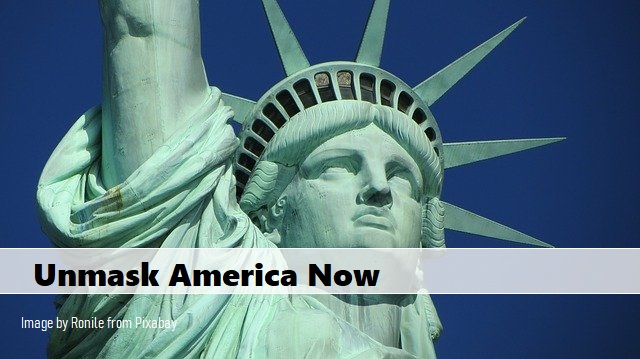




 Clarion Project: Why do you think certain sections of the left have struggled to robustly combat the problems of Islamism?
Clarion Project: Why do you think certain sections of the left have struggled to robustly combat the problems of Islamism? 

 Clarion: You are currently a second year student at the University of Edinburgh. How do people on campus relate to the issue of Islamist extremism?
Clarion: You are currently a second year student at the University of Edinburgh. How do people on campus relate to the issue of Islamist extremism?
 Clarion: Why do you support UK airstrikes against targets in Syria?
Clarion: Why do you support UK airstrikes against targets in Syria?
 Clarion: You’ve spoken before about the need to revive liberalism to adequately tackle Islamism? What do you mean by that and why is it necessary?
Clarion: You’ve spoken before about the need to revive liberalism to adequately tackle Islamism? What do you mean by that and why is it necessary? Clarion: You left the Labour party after the election of Jeremy Corbyn. Where do you see a political home for left wingers who oppose Islamism?
Clarion: You left the Labour party after the election of Jeremy Corbyn. Where do you see a political home for left wingers who oppose Islamism? 